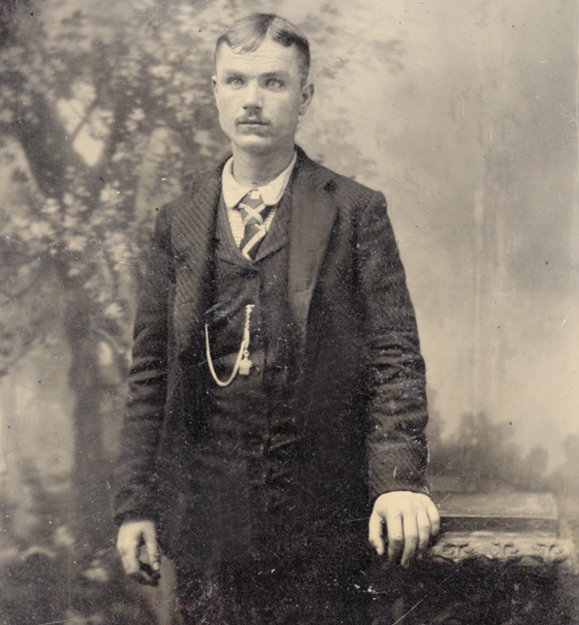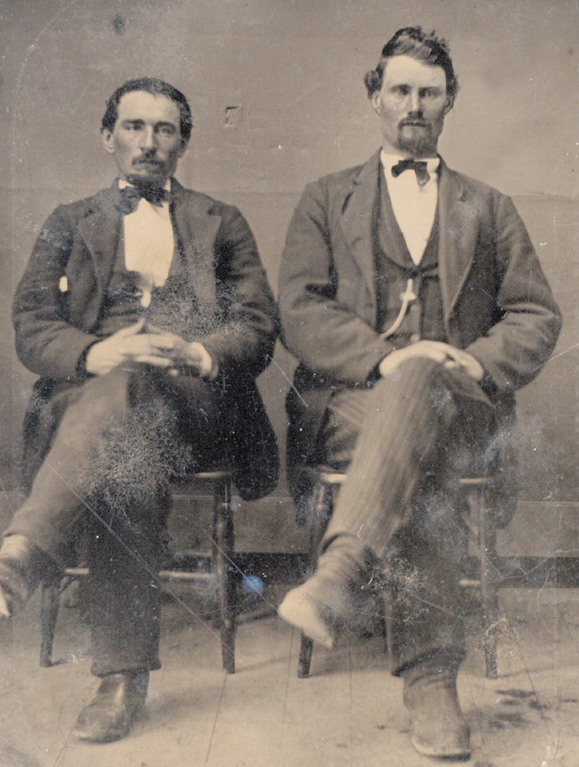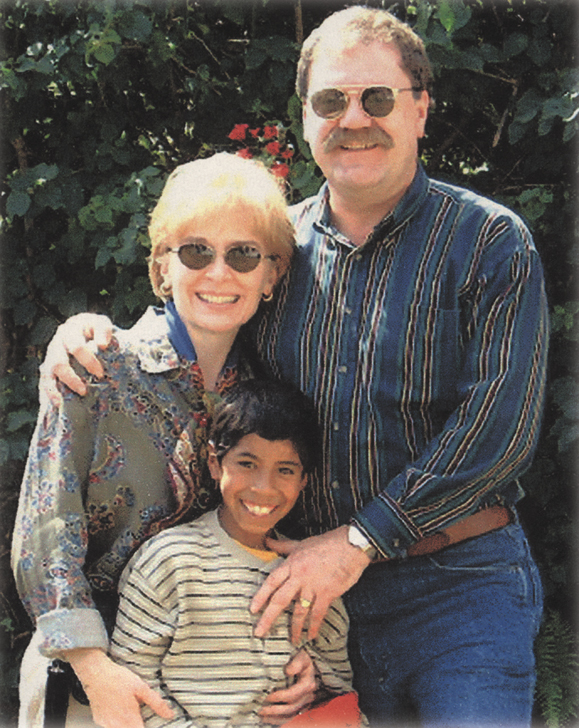On their first date ten years ago in a French restaurant in Pittsburgh, John Kudlik and Susan Showalter, both part Irish, discovered they had something in common. John, a historian, is the great-great-grandson of Daniel Dowd, a farmer who came to America on the Jeanie Johnston in 1849. When he told Susan his family was from a town in Country Kerry called Ballymacelligot, she said, “You’re not going to believe this, but it is the ancestral home of the Babbingtons,” her mother’s family.
Kudlik is a professor of Medieval European history at the Community College of Alleghany and an adjunct professor at the University of Pittsburgh. Showalter was a professor of child psychology and now develops programs for at-risk teens.
Showalter described her husband as a man who “lives and breathes history.” In his early teens, Kudlik used to talk with his great-grandmother’s brother, a man who lived into his eighties. “We had a big photo album of tintypes and he’d identify each person and tell stories about them.”
Kudlik learned that Daniel Dowd was born sometime around 1810 to 1815 near Castlemaine, County Kerry. His first wife, Julia Cahill, bore him two sons, John, from whom Kudlik is descended, and Patrick. After Julia died, Daniel married Margaret (Peg), who bore five or six children. Both were 29 when they left Tralee on the Jeanie Johnston with six-month-old Mary. The older sons would follow them later.

Dowd operated a thriving dairy in Washington, D.C. and had a 150-acre farm in Maryland. (Both buildings are still standing.) He became an American citizen in 1856 and according to oral family history, supplied milk to the Union Army during the Civil War. Dowd died of tuberculosis in 1869 and despite being unable to read or write, left a detailed will which survives in the Washington, D.C. archives. This helped Kudlik trace the family.
John Dowd worked for the Pennsylvania railroad in Pittsburgh and died in 1912. His half -brother Morris (Margaret’s son) enlisted in the army in 1876, fought in the Indian Wars under General Miles Nelson, and won two silver medals. Kudlik’s mother told him that Morris never mentioned his army life and he died a poor man during the Great Depression. Kudlik speculates that perhaps he sold the medals for money.
After Kudlik and Showalter were married, she was researching County Kerry on the Internet one day and she yelled down the stairs to him about the replica of the Jeanie Johnston, under construction in Blennerville, near Tralee. They decided to go and see it in 1999. While chatting with the ship’s carpenters and other workers, Kudlik mentioned that he was descended from someone who came over on the original boat. According to Showalter, they were whisked off to Tralee to meet historian Helen O’Carroll, who was thrilled to meet someone with historic information.
At this point, Showalter did not know her own connection to the Jeanie Johnston, but when she mentioned the Babbingtons, the historian “spun around in her chair and pulled out a file.” O’Carroll showed them a log book found under the floor boards of a pub in Tralee. It listed five Babbingtons (who lived on Castleisland) among the crew members on a crossing in April, 1854.
For John Kudlik’s 60th birthday this year, his family gave him a three-day sail as a trainee on the Jeanie Johnston from Baltimore to Philadelphia. As part of the crew, which rotated jobs, Kudlik was doing a little bit of everything.

“I was a bit shy of climbing into the rigging,” he said, “but I enjoyed all the other work.” Late one night they hit a big squall in Delaware Bay as they neared Philadelphia and the wind pushed the boat hard. Then they were hit by sheets of rain. “The crew was up the rigging in a flash to bring the sails in before they were torn to shreds.” To Kudlik’s romantic sense this was like being part of Moby Dick or Billy Budd. “It was exhilarating,” he said, but admitted he was apprehensive.
Showalter and the other family members, including her mother, Margaret Babbington, toured the tiny ship in Baltimore. Afterwards, Babbington said, “I think I would have stayed in Ireland and starved to death.” ♦


Leave a Reply